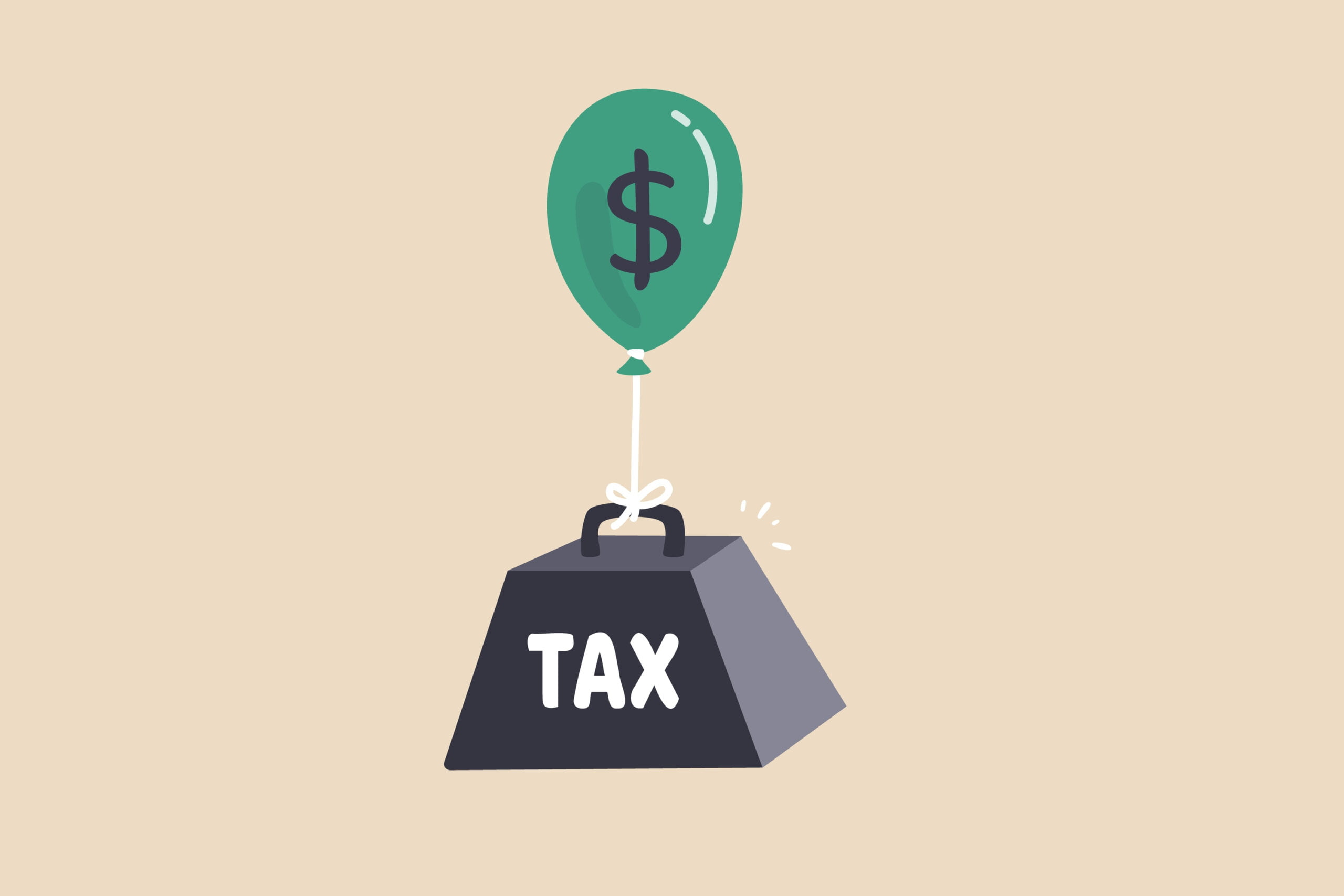Summary: Taxes in Canada
What are your feelings about tax rates in Canada? This might depend on where you live, as certain Canadian jurisdictions would feel income tax pain a little more than others. Personally, I have a bit of a complicated relationship with tax rates in Canada. On one hand, of course it’s difficult to give a large part of my earnings away to the government, but on the other hand I think far too many people in Canada take for granted the benefits and services that we receive in Canada. It’s fair to say that I’m in the camp where I am fine paying my fair share of tax, as long as it is being used responsibly to benefit the lives of Canadians. No matter how you feel about paying taxes and current tax rates in Canada, your relationship with tax is likely to become more complicated in the coming years.
Will Canadian Tax Rates Go Up?
Leading into the pandemic, Canada was running annual deficits in the range of $25-$30 billion per year.
As we know, those deficits have ballooned during the pandemic as we fought to keep the Canadian economy moving and keep Canadians afloat. The consequences of this spending will not be understood for some time, and frankly, there was really no other option as failing to act would have had catastrophic consequences. But nevertheless, at some point we as Canadians will pay for this short term relief. The payment will come in likely one of two forms: spending cuts or increased taxes.
Given that, in my experience, politicians have never been that great in cutting spending, I think it’s likely we will see an increase in tax rates in order to service the swelling debt levels that we are building. The question is, what form will these tax increases take?
How Tax Rates Might Increase
There have been numerous rumours about tax increases coming over the last few years including taxing gains on principal residences, estate taxes, and an increase in the capital gains inclusion rate. Although it remains unclear what increased taxes could look like in the future, I think it’s more likely that we will see an increase in the capital gains inclusion rate as compared to introducing a tax on principal residences. Additionally, I don’t think that estate taxes should be off the table in Canada either, especially for higher net worth estates. Depending on what increases we will see, an opportunity for tax planning will present itself, as often a re-arrangement of your assets can have a significant impact on your tax liability.
For incorporated professionals and business owners this will come as nothing new as corporations have been used for tax planning purposes for decades, which of course became a little more challenging since the passive income rules came into effect back in 2018. Despite these rule changes, corporations remain a highly effective tax planning vehicle for those who are able to incorporate. Additionally, tax preferred investment accounts including RRSPs and TFSAs will undoubtedly become even more valuable as contribution room increases year over year. I believe it’s likely that in the future having a $1,000,000+ TFSA will become a regular occurrence, especially for those who start investing early and allocating their highest growth assets accordingly. Barring any rule changes to the existing plan framework, these are the planning moves you can make today in anticipation of potentially higher taxes long into the future.
Aside from investing into tax preferred accounts, including TFSAs, are there other measures that can be taken today?
I would be cautious about trying to predict too much about the future. I have seen many people trigger capital gains taxes in the financial industry in anticipation of rising capital gain taxes, which never came to be or at least it hasn’t happened yet. Despite the fact that I think it’s likely that tax increases are coming, I see no reason to make such drastic planning moves. It remains unclear what tax reform in the future will look like and you likely cause more harm than good by trying to anticipate what will happen. I prefer to take the stance that you should make the best decision possible based on what you know today while being mindful of the future. Stay flexible in your plan so that you can adapt quickly and have a good financial plan in place which will help you to make informed decisions when change happens. If you do this, you’ll be ready for whatever curve ball comes our way.
Grant White is a Portfolio Manager/Investment Advisor at Endeavour Wealth Management with iA Private Wealth Inc, an award-winning office as recognized by the Carson Group. Together with his partners he provides comprehensive wealth management planning for business owners, professionals and individual families.
This information has been prepared by Grant White who is a Portfolio Manager for iA Private Wealth Inc. and does not necessarily reflect the opinion of iA Private Wealth. The information contained in this newsletter comes from sources we believe reliable, but we cannot guarantee its accuracy or reliability. The opinions expressed are based on an analysis and interpretation dating from the date of publication and are subject to change without notice. Furthermore, they do not constitute an offer or solicitation to buy or sell any of the securities mentioned. The information contained herein may not apply to all types of investors. The Portfolio Manager can open accounts only in the provinces in which they are registered.

